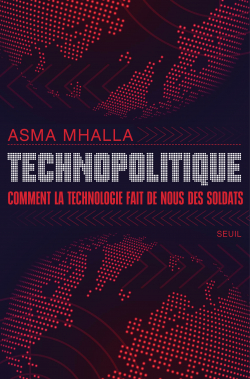Nicole de Brabandere (PhD, University of Arts, Linz) is an associate researcher at McGill University, Canada, and collaborator member at Hexagram. She is the editor of the forthcoming volume: Media, Practice and Theory: tracking emergent thresholds of experience, a collection of 10 chapters around concepts and practices of corporeality, articulation, and media, to be published by Vernon Press in spring, 2022. De Brabandere's PhD thesis was awarded the “Research Excellence Award” by the Austrian Federal Ministry of Education, Science and Research, an award which is given to the forty top doctoral dissertations in all of Austria, from all disciplines. De Brabandere has published numerous peer-reviewed articles on topics such as affect, creative practice, collaboration and media studies, and has presented talks, workshops and exhibitions in these topics at public and private venues internationally. In 2021 De Brabandere presented the short paper “Machine-Generated Portraits as Impersonal Gestures” for the International Symposium on Electronic Art (ISEA): Why Sentience? in 2021. The findings presented in this talk will be published in the experimental text “Co-composing the Perceptible across Affective, Painterly and Computational Generativities” for the special issue: Algo-rhythms, Kunstlicht Journal, Amsterdam, spring 2022.
Conference : Does painting machine-generated images open a spacetime of corporeal co-composition between humans and machines?
Friday 6 may 2022, 16h - 16h45 — Amphi orange
This talk presents findings detailing the emergent perceptibility of images created by the Generative Adversarial Network (GAN) of the website ThisPersonDoesNotExist.com. The machine-generated images sometimes achieve the photographic likeness of a person, but also make visible computational patterns that propose alternate organizations of form and ground, surface and substance, materiality and immateriality. What's more, images that initially appear to be objects signifying the real, upon close examination, have no single referential origin but are rather organized in strange configurations that traverse the photographic and computational. Through the careful study afforded by the process of painting these images, the appearance of referential figuration belies alternate generativities, where, for example, the appearance of depth-of-field or over-exposure is revealed as the substance of hair or cloth. While GAN renderings are generated in milliseconds, painting them offers an expanded temporality with which to engage their heterogeneous and transversal constitution. This in turn reconfigures the sense of facticity (and corresponding affects pitting subjects against objects) conjured by the photographic instant. The findings presented in this talk thus signal openings to engage and develop a felt sense of co-composition with the machine-generated image that traverses the human and machine.

Luc De Brabandere
Note moyenne : /5 (sur 0 notes)
Note moyenne : /5 (sur 0 notes)
Résumé :
Faire la différence ! Telle a toujours été la clé du succès pour une entreprise, et aujourd'hui, à l'heure de la surinformation et de la surcommunication, plus que jamais ! Seule l'émergence d'idées nouvelles traduites en produits, services ou process, peut encore garantir un avantage concurrentiel durable… à condition de bien en comprendre les mécanismes et les enjeux. Le Management des idées propose au responsable d'entreprise de passer de la créativité à l'innova... >Voir plus
étiquettes
Ajouter des étiquettes
Que lire après Le Management des idées : De la créativité à l'innovationVoir plus
Critiques, Analyses et Avis (1)
Ajouter une critique
magnifique
Lien : https://sanaelouazzani.www.ma
Lien : https://sanaelouazzani.www.ma
Videos de Luc De Brabandere (4)
Voir plusAjouter une vidéo
autres livres classés : innovationVoir plus
Les plus populaires : Non-fiction
Voir plus
Les Dernières Actualités
Voir plus
Autres livres de Luc De Brabandere (22)
Voir plus
Quiz
Voir plus
Les plus grands classiques de la science-fiction
Qui a écrit 1984
George Orwell
Aldous Huxley
H.G. Wells
Pierre Boulle
10 questions
4856 lecteurs ont répondu
Thèmes :
science-fictionCréer un quiz sur ce livre4856 lecteurs ont répondu




































